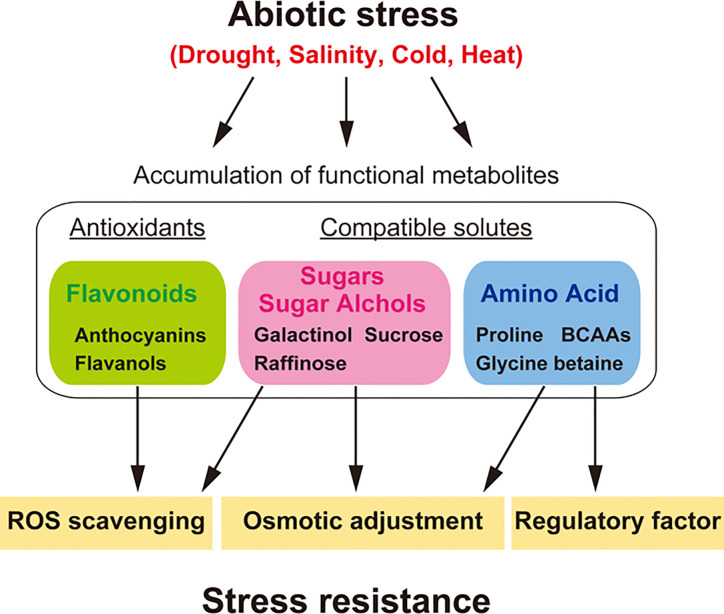Figure 2.
Metabolites and their functions in abiotic stress tolerance, especially under drought, salinity, cold and heat stress. Plants show a variety of metabolic responses to diverse abiotic stresses. Stress-induced accumulation of compatible solutes such as sugars (e.g., raffinose and sucrose), sugar alcohols (e.g., galactinol), and amino acids (e.g., BCAAs, proline, and glycine-betaine) functions in osmotic adjustment, enabling the maintenance of cell turgor for plant growth and survival under stress conditions. These compatible solutes, especially galactinol and raffinose, can act as free radical (ROS) scavengers, protecting against oxidation by removing excess ROS and reestablishing the cellular redox balance. BCAAs can act as regulatory factors in the production of specialized/secondary metabolites as a defense response against biotic stress during abiotic stress. Stress-induced accumulation of antioxidants such as flavonoids (e.g., anthocyanins and flavonols) allows them to act as free radical scavengers to mitigate oxidative and drought stress in plants. Genes involved in metabolite synthesis in diverse abiotic stress responses are useful for application in the metabolic engineering of stress resistance in dry field conditions.

